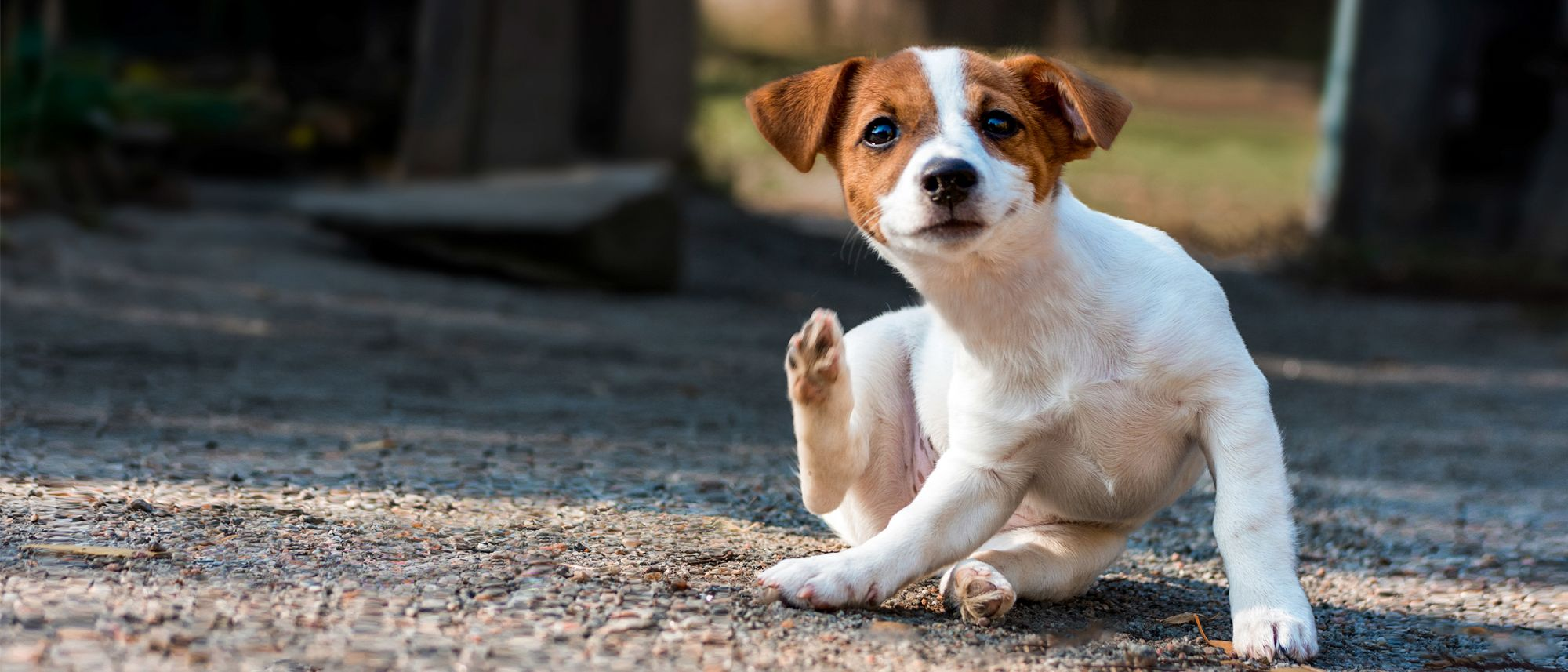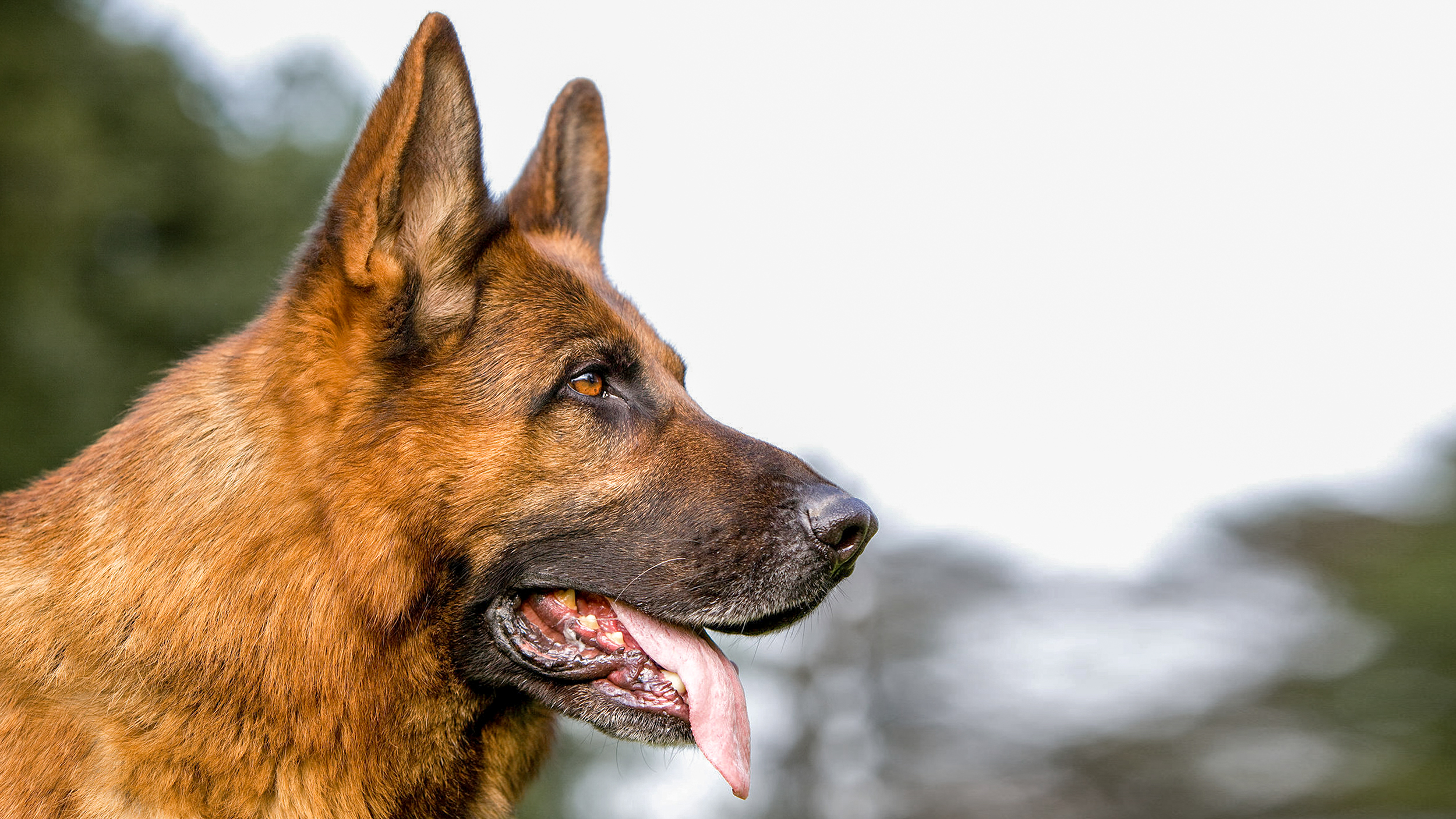Зашто се мој пас стално чеше?

Ваш пас се вешто брине о себи, што укључује да повремено осећа свраб или се чеше како би се решио инсеката и других иританата. Али ако сте приметили да се ваш пас непрекидно чеше неколико дана или да му је кожа упаљена, то може значити да нешто није у реду.
Чешање због инсеката и бува на вашем псу
Један од најчешћих узрока сталног свраба је паразит који се закачио за пса. То укључује буве, ваши и друге инсекти или гриње, што све може да створи иритацију код пса. Лечење од бува треба да буде редован део рутине са вашим псом како бисте смањили ризик од заразе. Кад су у питању гриње и други спољни паразити присутни у вашем дому, можете спречити да се стање коже вашег пса погорша редовним усисавањем и обезбеђивањем душека или кревета без гриња.
Међутим, ваш пас се може чешати из другог, сложенијег разлога: алергије.
Ваш пас и алергије
Неки пси имају генетску предиспозицију за алергијске реакције коже, што се зове „атопијски дерматитис“. Он погађа значајан број псеће популације у неким земљама, а неке расе – попут француског булдога, немачког овчара или лабрадор ретривера – више су изложене ризику од других.
Атопијски дерматитис се јавља зато што имуни систем вашег пса претерано реагује на нормалан елемент из околине или дијете, а прекомерно реаговање доводи до снажног свраба док ваш пас покушава да ублажи нелагоду. Ово понашање може да доведе до проблема са њиховом кожом, јер она постаје оштећена или има чиреве, а вашег пса чини склонијим другим инфекцијама.

На какве ствари су пси алергични?
Постоји низ ствари на које су пси често алергични. Ту спадају фактори окружења, попут перја, плесни или гриње, од којих су неки сезонски – попут полена траве или дрвећа. Такође укључују одређену храну, попут одређених млечних производа, говедине, пилетине, јаја, соје или неких житарица. Алергијске реакције се дешавају када је ваш пас рано у животу био изложен нечему, а од тада па надаље има нежељену реакцију. Уочавањем раних знакова алергијских реакција, имате веће шансе да пронађете најбољи лек за ово доживотно стање.
Како ће мог пса тестирати на алергије?
Важно је да пса одведете ветеринару ако сумњате да има алергију на нешто. Ветеринар ће поставити низ питања како би сазнао више о симптомима пса, а затим спровести различите тестове како би открио који би алерген то могао бити. То би могло укључивати узорковање коже и тестове крви, а ако ветеринар посумња да постоји алергија на храну, од вас ће затражити да ставите свог пса на режим елиминационе дијете у трајању од 8 до 12 недеља.
Ово омогућава ветеринару да идентификује која специфична храна изазива алергијску реакцију вашег пса тако што ће га хранити потпуно новим извором хране, затим поново уводити старе изворе хране један по један и надзирати резултат.
Брига о кожи вашег пса
Постоји неколико једноставних начина да водите рачуна о кожи пса који ће вам помоћи да ублажите све алергијске реакције и побрините се да буде што здравија. Редовно прање пса посебним шампоном помаже му да буде чист и може да умири кожу, нудећи тренутно олакшање. Актуелни третмани попут гелова и крема такође су доступни за медицинску негу.
Пса такође можете подржати давањем хране богате храњивим састојцима за које је познато да подржавају здравље његове коже. То укључује омега 3 и омега 6 есенцијалне масне киселине, које играју улогу у одржавању здраве кожне баријере, антиоксидансе и алоја веру, која се сматра корисним додатком у решавању неких кожних стања.
Важно је да се обратите ветеринару ако приметите да пас има свраб или се чеше већ неколико дана, а можете у било ком тренутку разговарати са ветеринаром да бисте сазнали више о нези коже вашег пса.
Related Articles

Пронађите ветеринара
Ако имате било каквих недоумица у вези са здрављем свог пса, потражите стручни савет ветеринара.
Лајкуј и подели страницу